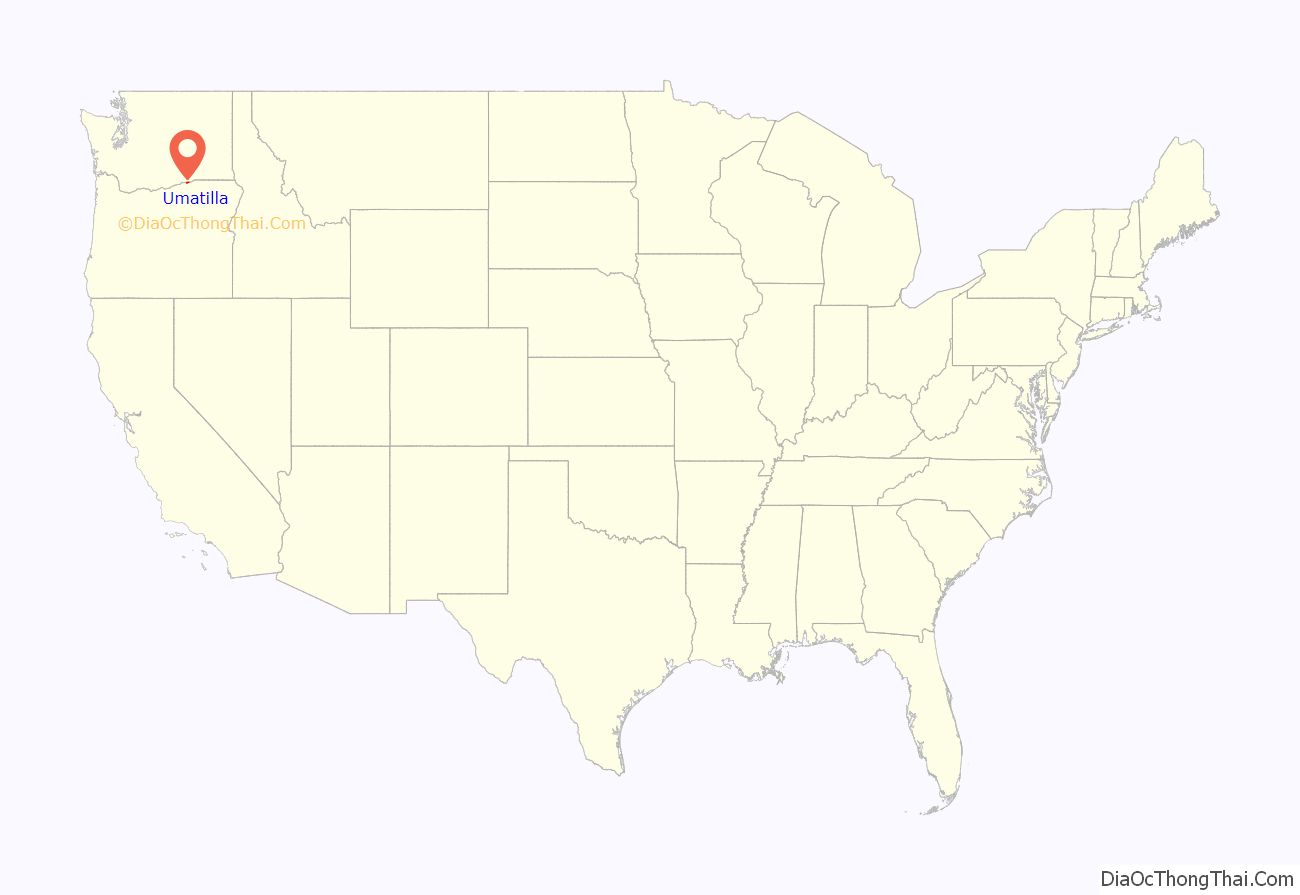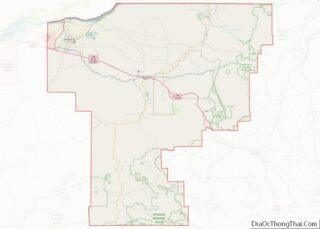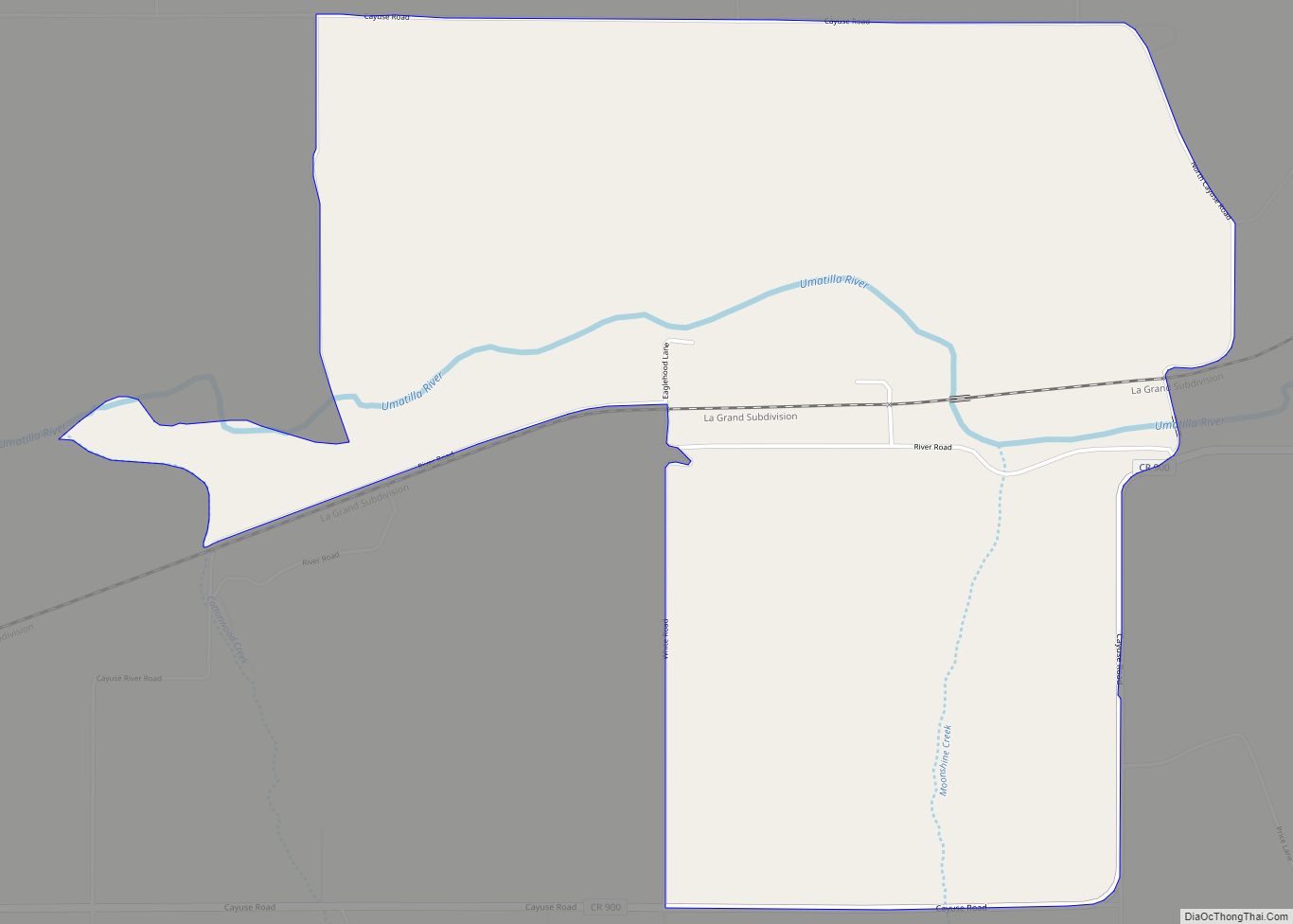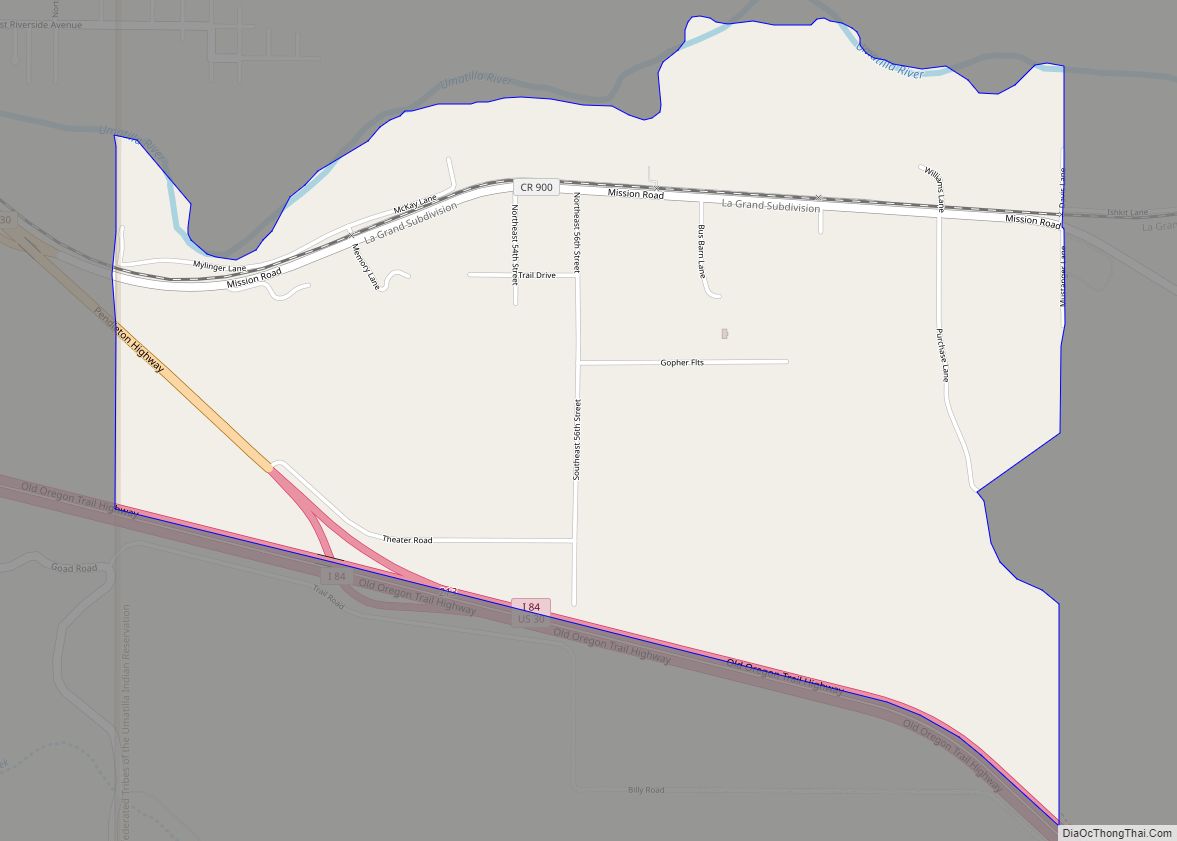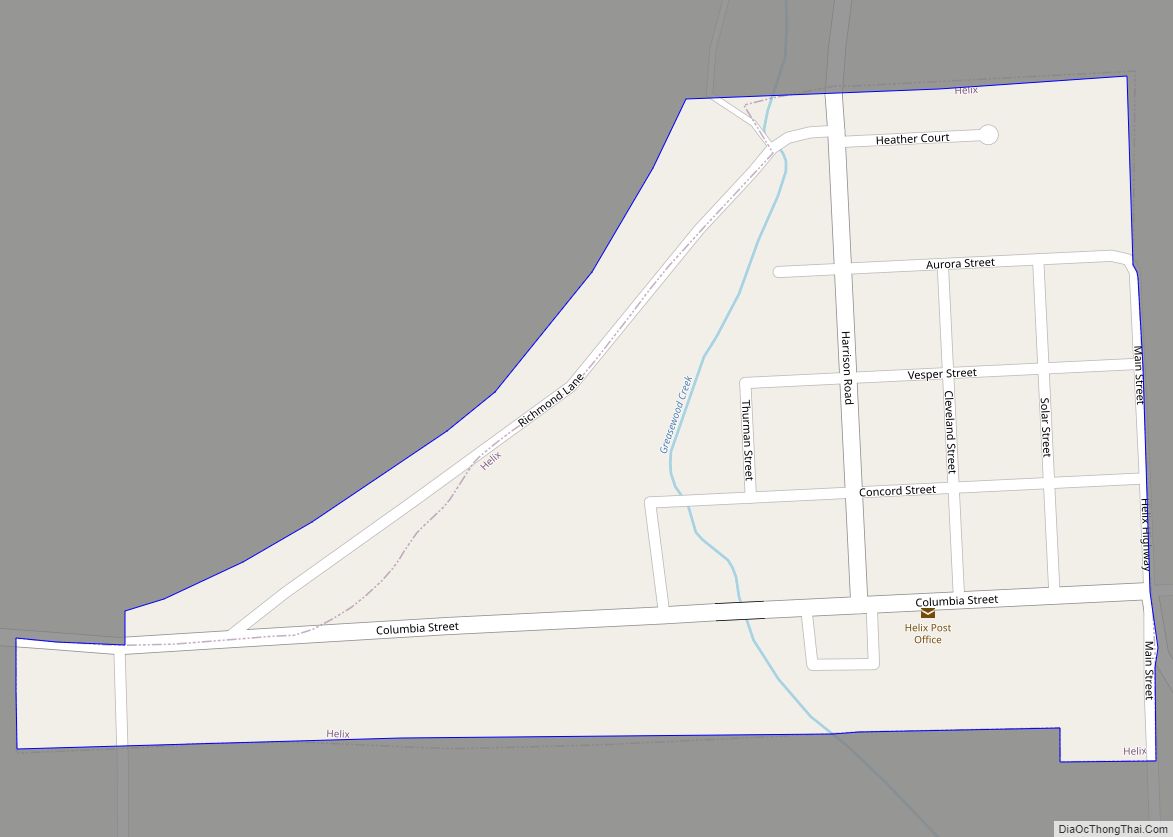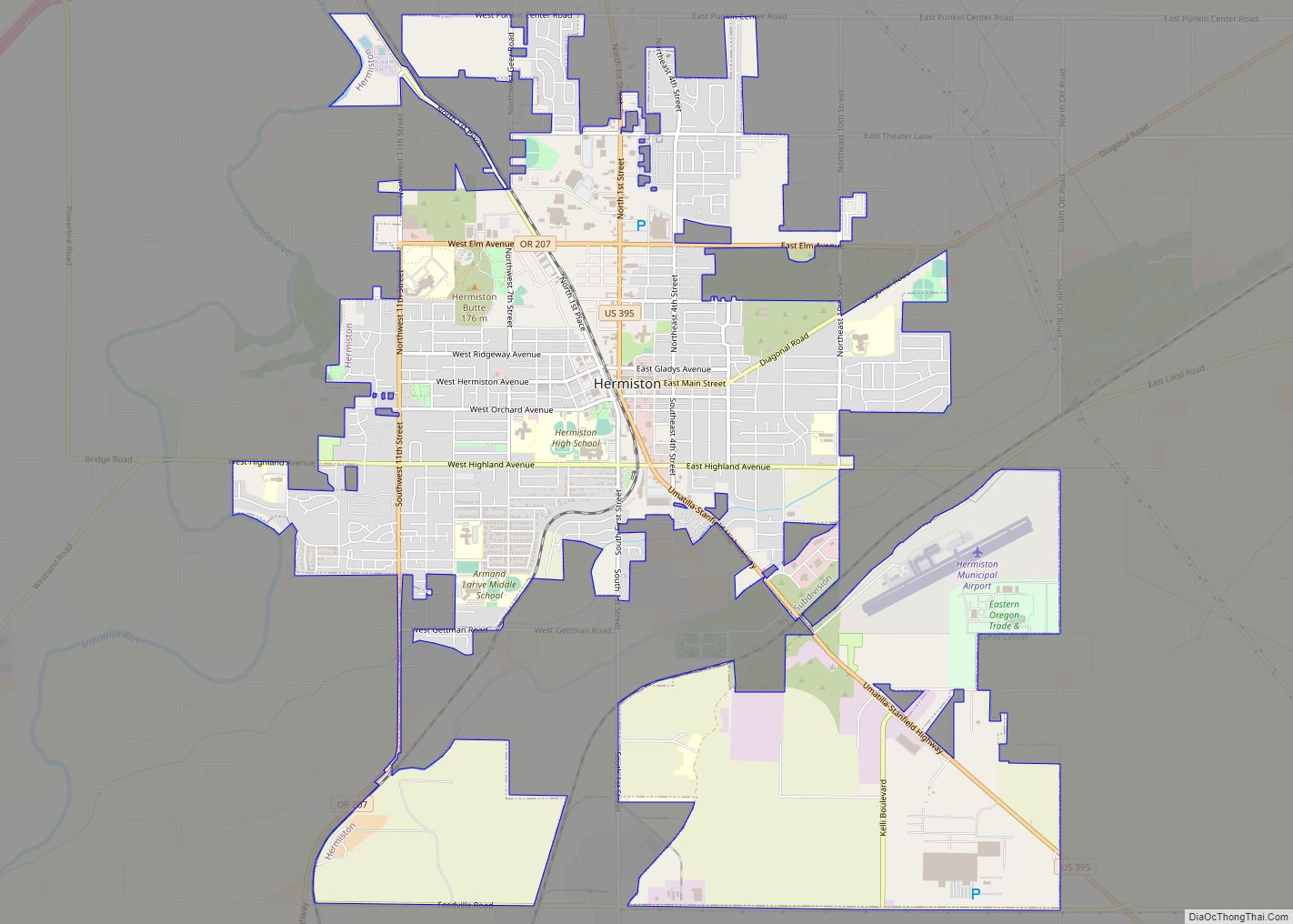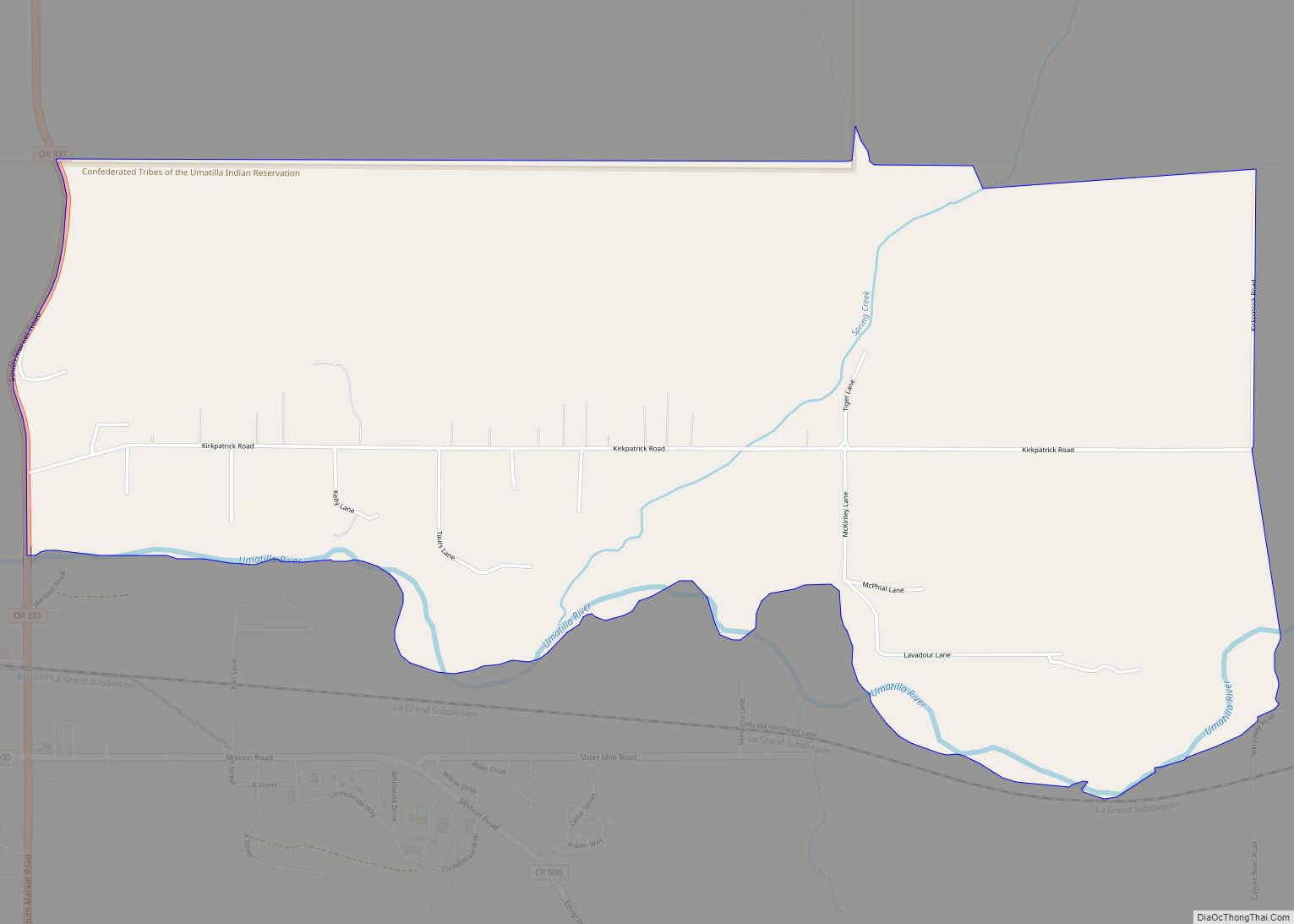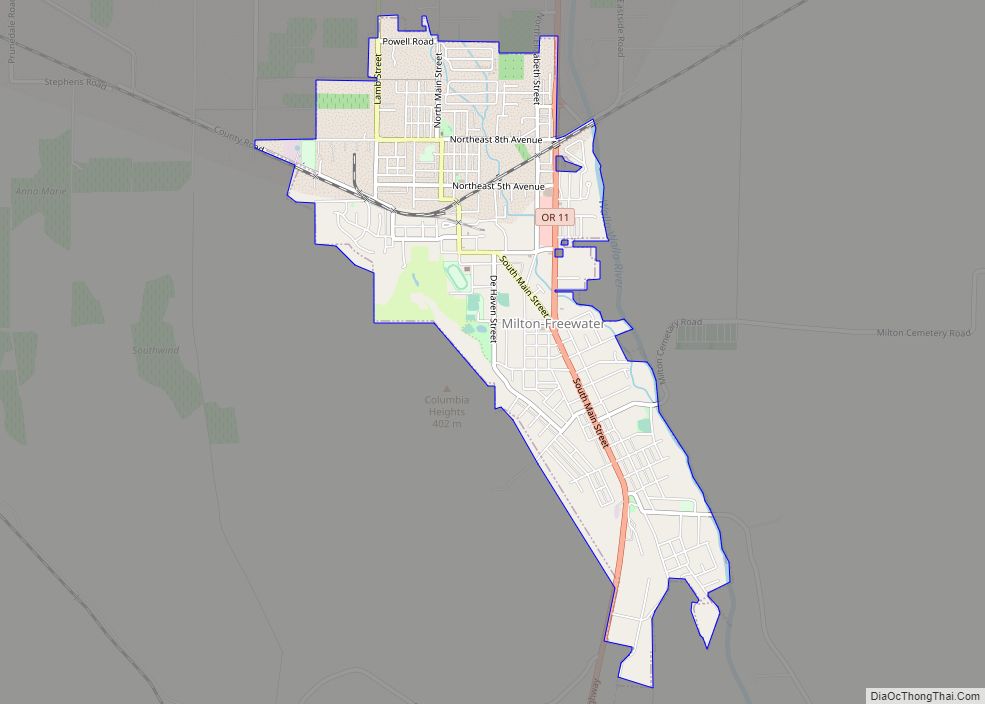Umatilla (/ˌjuməˈtɪlə/, YOO-mə-TIL-ə) is a city in Umatilla County, Oregon, United States. The population in 2010 was 6,906, but the city’s population includes approximately 2,000 inmates incarcerated at Two Rivers Correctional Institution.
Umatilla is part of the Hermiston–Pendleton Micropolitan Statistical Area, but has the highest poverty rate (24%) and lowest Median Household Income ($38,796), of all communities in the area; trailing neighboring Hermiston in household income by nearly 23%.
The city is on the south side of the Columbia River along U.S. Route 730 and I-82. The Umatilla Chemical Depot, is 6 miles (10 km) southwest of the city, northwest of the intersection of I-84 and I-82.
| Name: | Umatilla city |
|---|---|
| LSAD Code: | 25 |
| LSAD Description: | city (suffix) |
| State: | Oregon |
| County: | Umatilla County |
| Incorporated: | 1864 |
| Elevation: | 322 ft (98 m) |
| Total Area: | 5.08 sq mi (13.16 km²) |
| Land Area: | 4.99 sq mi (12.92 km²) |
| Water Area: | 0.10 sq mi (0.25 km²) |
| Total Population: | 7,363 |
| Population Density: | 1,476.44/sq mi (570.10/km²) |
| ZIP code: | 97882 |
| Area code: | 541 |
| FIPS code: | 4175650 |
| GNISfeature ID: | 1128399 |
| Website: | www.umatilla-city.org |
Online Interactive Map
Click on ![]() to view map in "full screen" mode.
to view map in "full screen" mode.
Umatilla location map. Where is Umatilla city?
History
Before European settlement, the peninsula formed by the convergence of the Umatilla and Columbia rivers had been occupied by the indigenous Umatilla people for at least 10,000 years, being the site of temporary and seasonal villages, fishing and later horse breeding. On their return trip from the mouth of the Columbia River in 1806, the Lewis and Clark Expedition made note in their journals of a village on the site.
The first Umatilla post office was established in September 1851 at the Umatilla Indian Agency about 5 miles (8 km) east of Pendleton, but was discontinued in January 1852. The Umatilla Indian Reservation was created in 1855 after the Walla Walla Council treaty and many of the Umatilla, Cayuse and Walla Walla tribes relocated there, with the vast majority of their lands being given over to the US government. Not long after, when gold was discovered in the Boise Basin of Idaho and in Montana in 1862, the Columbia River became an important passageway inland to the gold fields. That same year Timothy K. Davenport surveyed for a town site at the mouth of the Umatilla River and filed a plat in 1863. The site was chosen for its location just below the Umatilla Rapids, which formed a navigational headwater on the Columbia and prevented boats from traveling further upstream without needing to be portaged or needing their cargo transferred to a new boat above the rapids. The site was first known as Umatilla Landing, then Umatilla City, then Columbia, then Umatilla City once again over the next year or so. Its post office was established in 1863 with Z. F. Moody as postmaster.
Umatilla quickly became an important trade and distribution center not just for gold rush travelers but for the growing population of farmers and ranchers in the surrounding region. A business district developed along Water Street at the river’s edge and at the town’s peak it had 3 hotels, 22 saloons, 6 mercantiles and 3 grocery stores, among others. It won the county seat of Umatilla County by a small margin on March 6, 1865 But would only remain so until 1868 when it was moved to the burgeoning village of Pendleton. That same year the first newspaper (A tri-weekly) was established. For a brief time during the gold rush in the 1860s there was competition between Umatilla and Wallula, Washington to become the “Sacramento of the Upper Columbia” but the gold rush wouldn’t last long enough to support either town’s growth beyond frontier villages.
Umatilla remained a vital commercial center until the late 1870s, when the removal of the rapids in 1877 allowed boats traveling from The Dalles to continue directly to Wallula and beyond. The following year the Oregon Steam Navigation Company began construction of a narrow gauge railroad that would connect Umatilla to the agricultural inland, passing from Pendleton to Weston. The great flood of 1894 destroyed what was left of the original business district and many surviving buildings were moved away from the river. The Umatilla Masonic Lodge Hall, one of the only surviving buildings from the original townsite, was relocated to Echo, Oregon, 14 miles to the southeast in 1901. By the early 1910s, Umatilla was making a resurgence as an agricultural center and a new business district was forming along 3rd and 4th Streets, facing away from the river and towards the railroad tracks. Once again the town had several hotels and even a bank. In 1916 several women launched secret bids for local office, resulting in what has been called the Petticoat Revolution.
The Umatilla Chemical Depot opened in 1941, to prepare for World War II. The depot’s mission was to store and maintain a variety of military items, from blankets to ammunition. The depot took on its chemical weapons storage mission in 1962. From 1990 to 1994 the facility reorganized in preparation for eventual closure, shipping all conventional ammunition and supplies to other installations. On October 25, 2011, the last barrel of HD mustard agent was destroyed and there is no longer a risk of chemical accident in Oregon and Washington.
The original town site of Umatilla was abandoned completely when the United States Corps of Engineers determined that it would likely be inundated by the construction of the John Day Dam. Between 1965 and 1968 the town was completely rebuilt south of the railroad tracks and all of the buildings on the original townsite were bought and demolished. The relocation would turn out to be for naught as the water level at this point in the river was not affected by the dam’s reservoir. Umatilla’s original street grid can still be seen north of the railroad tracks and is now a nature preserve and protected archaeological site. It is still owned by the Corps of Engineers and is not accessible to the public.
Umatilla Road Map
Umatilla city Satellite Map
Geography
Umatilla is 30 miles (48 km) northwest of Pendleton.
According to the United States Census Bureau, the city has a total area of 4.63 square miles (11.99 km), of which, 4.42 square miles (11.45 km) is land and 0.21 square miles (0.54 km) is water.
Climate
According to the Köppen Climate Classification system, Umatilla has a semi-arid climate, abbreviated “BSk” on climate maps.
See also
Map of Oregon State and its subdivision: Map of other states:- Alabama
- Alaska
- Arizona
- Arkansas
- California
- Colorado
- Connecticut
- Delaware
- District of Columbia
- Florida
- Georgia
- Hawaii
- Idaho
- Illinois
- Indiana
- Iowa
- Kansas
- Kentucky
- Louisiana
- Maine
- Maryland
- Massachusetts
- Michigan
- Minnesota
- Mississippi
- Missouri
- Montana
- Nebraska
- Nevada
- New Hampshire
- New Jersey
- New Mexico
- New York
- North Carolina
- North Dakota
- Ohio
- Oklahoma
- Oregon
- Pennsylvania
- Rhode Island
- South Carolina
- South Dakota
- Tennessee
- Texas
- Utah
- Vermont
- Virginia
- Washington
- West Virginia
- Wisconsin
- Wyoming
